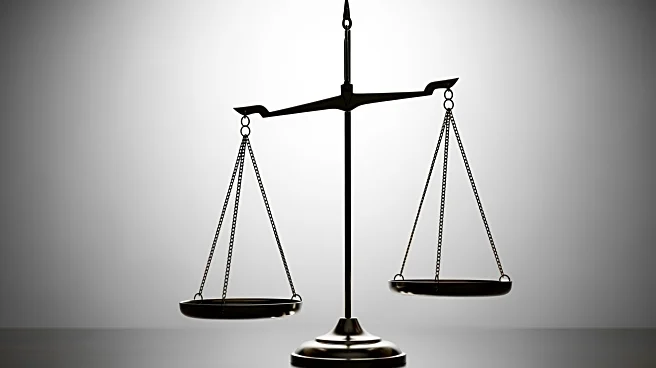What's Happening?
The United States Supreme Court is set to deliberate on a case that challenges the landmark Obergefell v. Hodges decision, which legalized same-sex marriage nationwide in 2015. The appeal comes from Kim
Davis, a former county clerk from Kentucky, who refused to issue marriage licenses to same-sex couples citing religious objections. Davis has requested the Supreme Court to overturn the Obergefell decision, arguing for a 'course correction.' The Court will meet privately to decide whether to hear this appeal among other cases, with a decision potentially announced soon. The current composition of the Court, which is more conservative than when Obergefell was decided, has raised concerns among LGBTQ advocates about the potential for revisiting the decision.
Why It's Important?
The Supreme Court's decision on whether to hear the appeal could have significant implications for same-sex marriage rights in the United States. If the Court decides to reconsider the Obergefell precedent, it could lead to a rollback of marriage equality, affecting nearly 600,000 same-sex couples who have married since the decision. This case also highlights ongoing tensions between religious freedom and LGBTQ rights, with potential impacts on child custody, financial planning, and other legal matters for same-sex couples. The broader cultural and political landscape has shifted towards greater acceptance of same-sex marriage, but opposition remains among certain religious groups, which have seen success in recent Supreme Court rulings.
What's Next?
The Supreme Court's decision on whether to hear the appeal could be announced as soon as Monday, though it may take weeks if justices wish to write opinions on the matter. If the Court decides to hear the case, it could set the stage for a significant legal battle over marriage equality. The case may also serve as a precursor to further challenges against the Obergefell decision, similar to the long-term campaign that led to the overturning of Roe v. Wade. Stakeholders, including LGBTQ advocacy groups and religious organizations, are likely to mobilize in response to the Court's decision, preparing for potential legal and public policy battles.
Beyond the Headlines
The case underscores the ongoing debate over the balance between religious freedom and civil rights. It raises questions about the role of the judiciary in shaping social policy and the potential for legal precedents to be revisited as the composition of the Court changes. The outcome could influence future legal strategies and advocacy efforts by both LGBTQ rights groups and religious organizations, potentially affecting broader civil rights issues in the United States.









